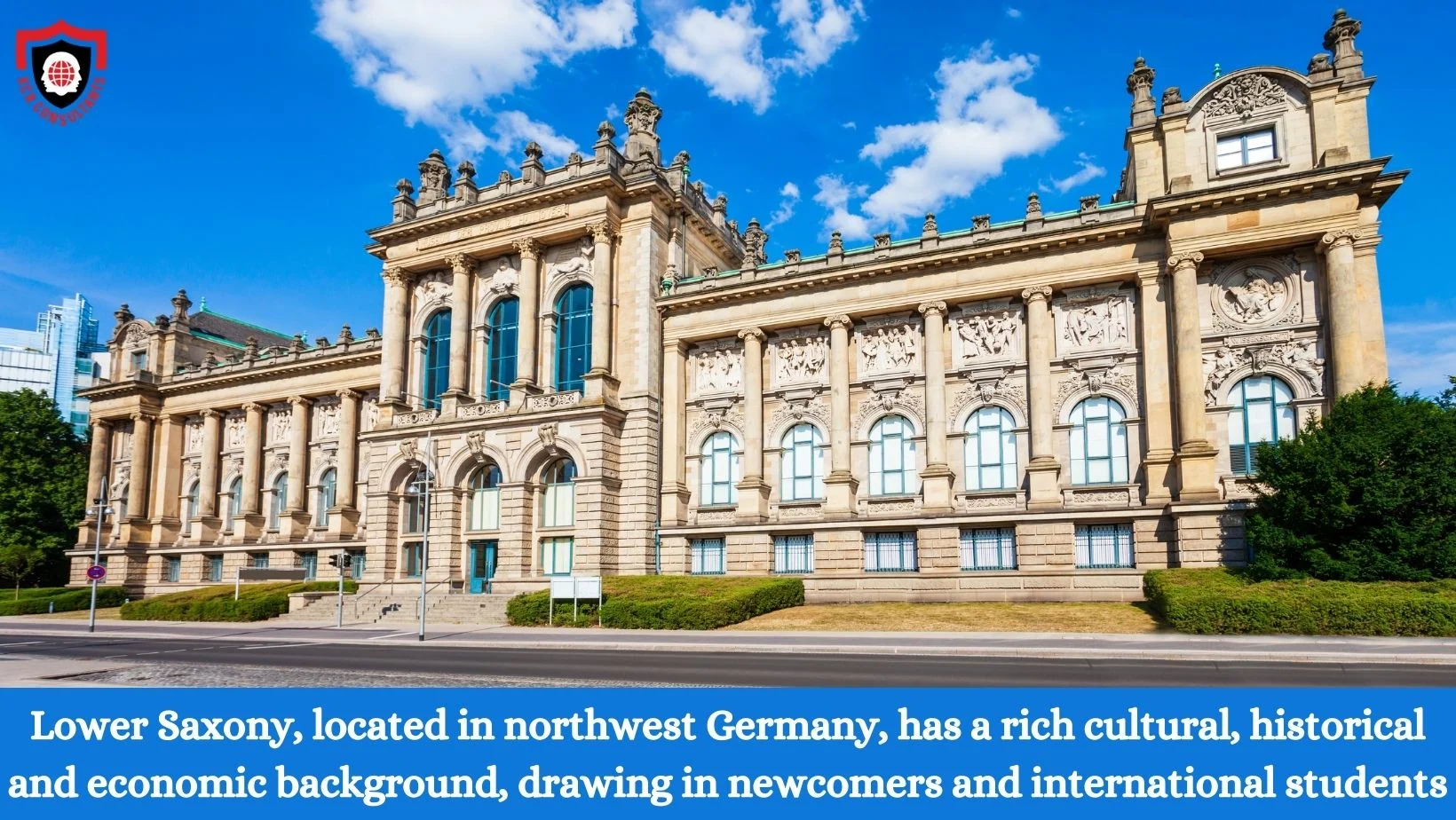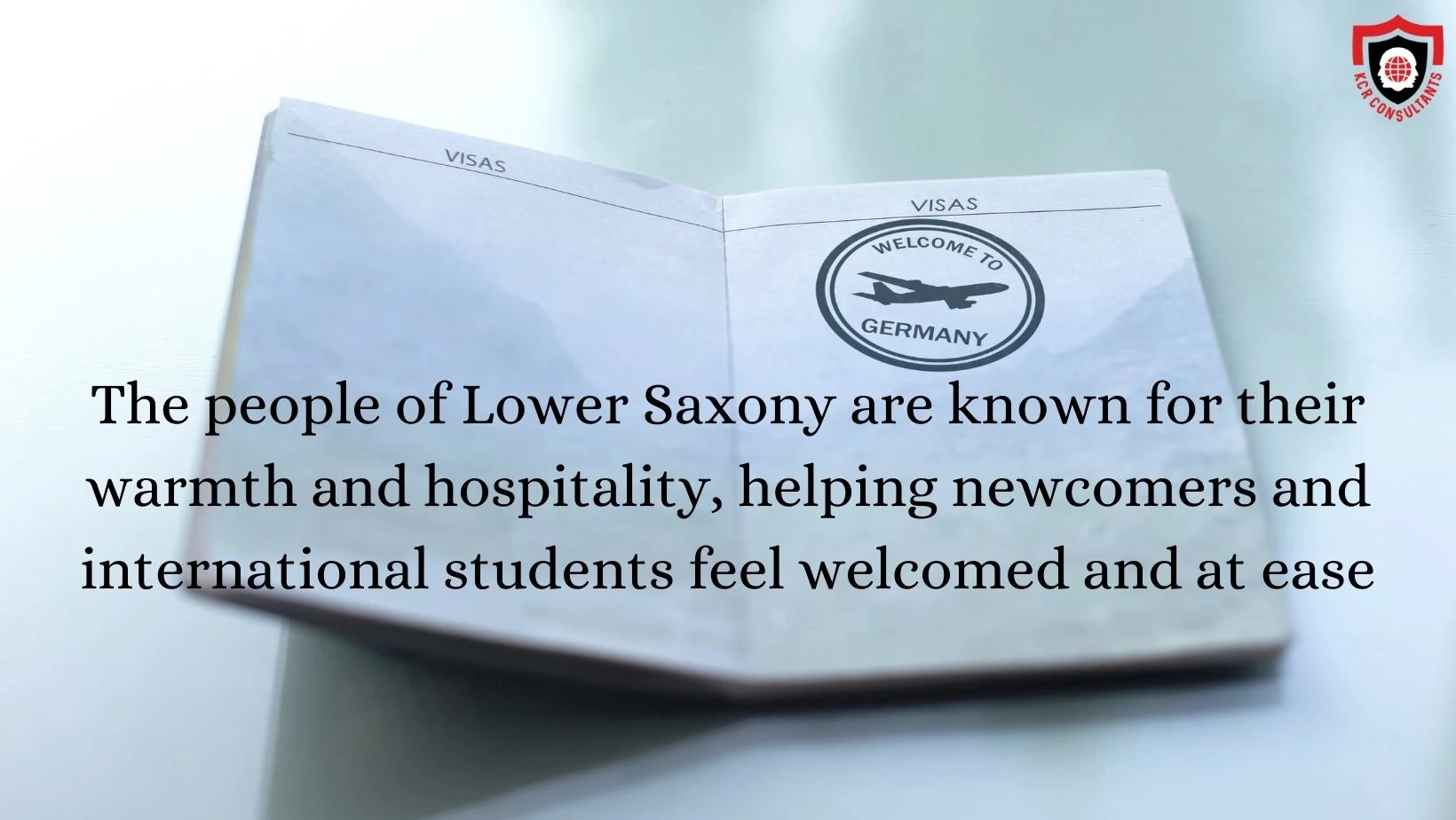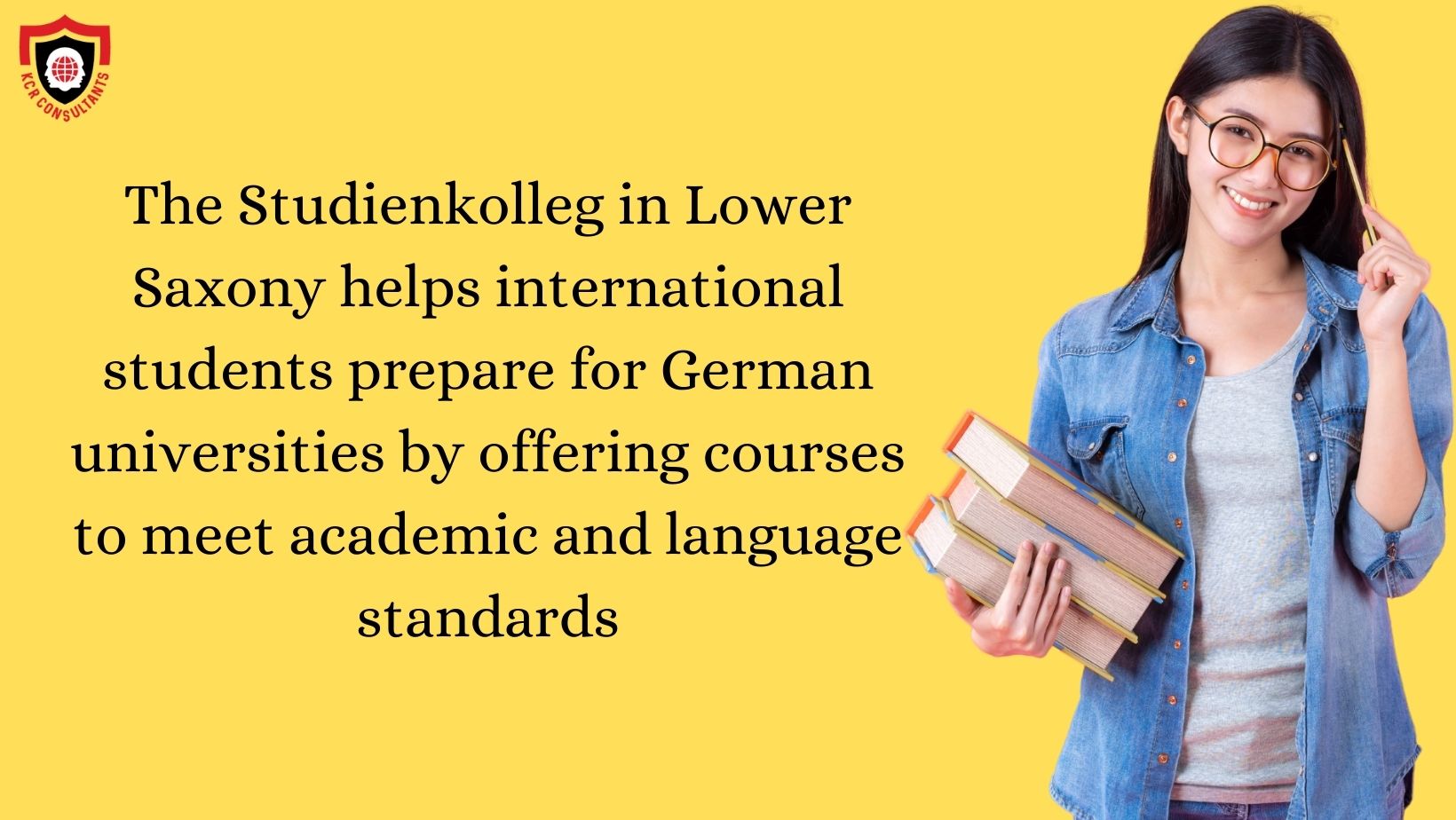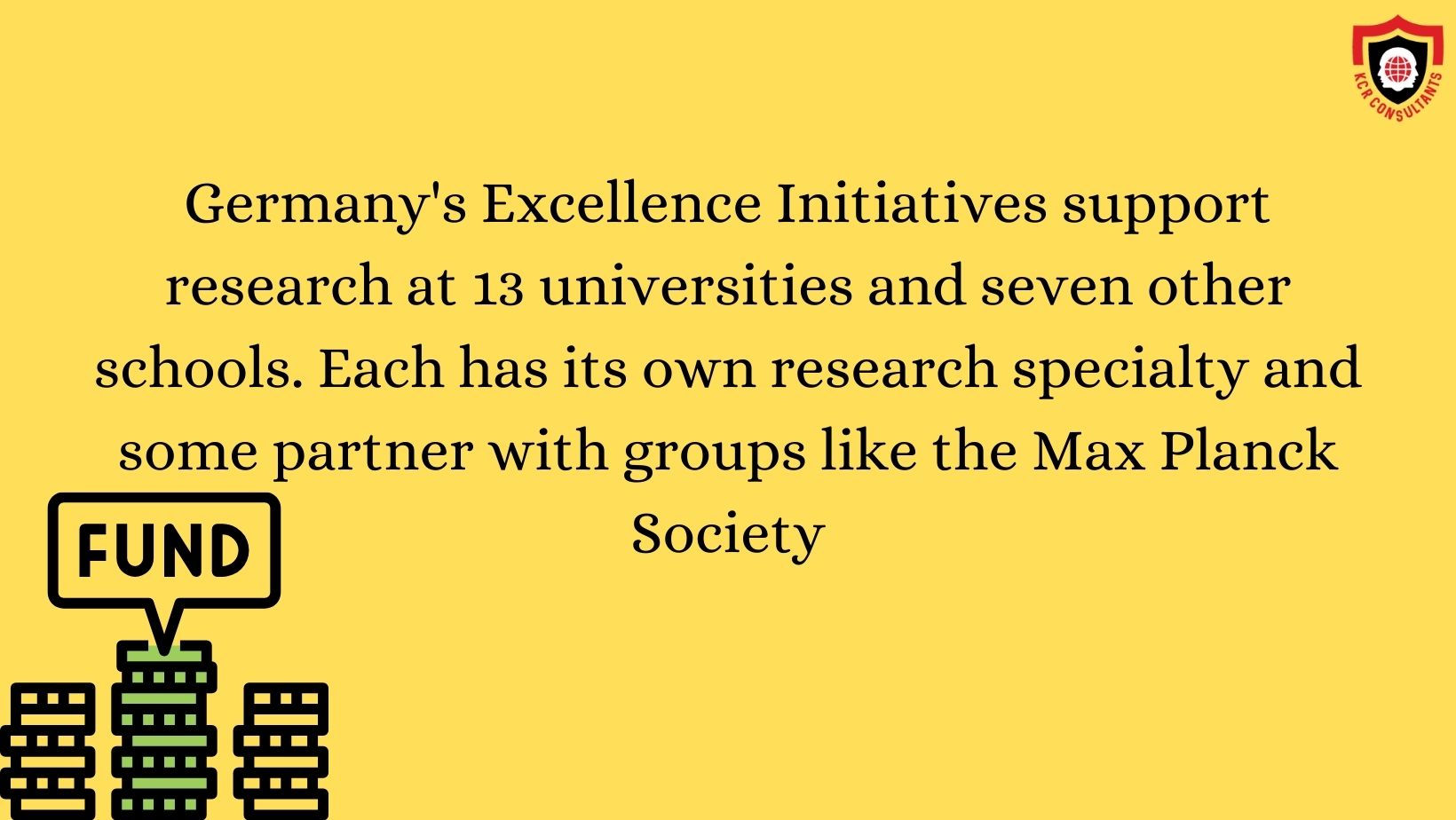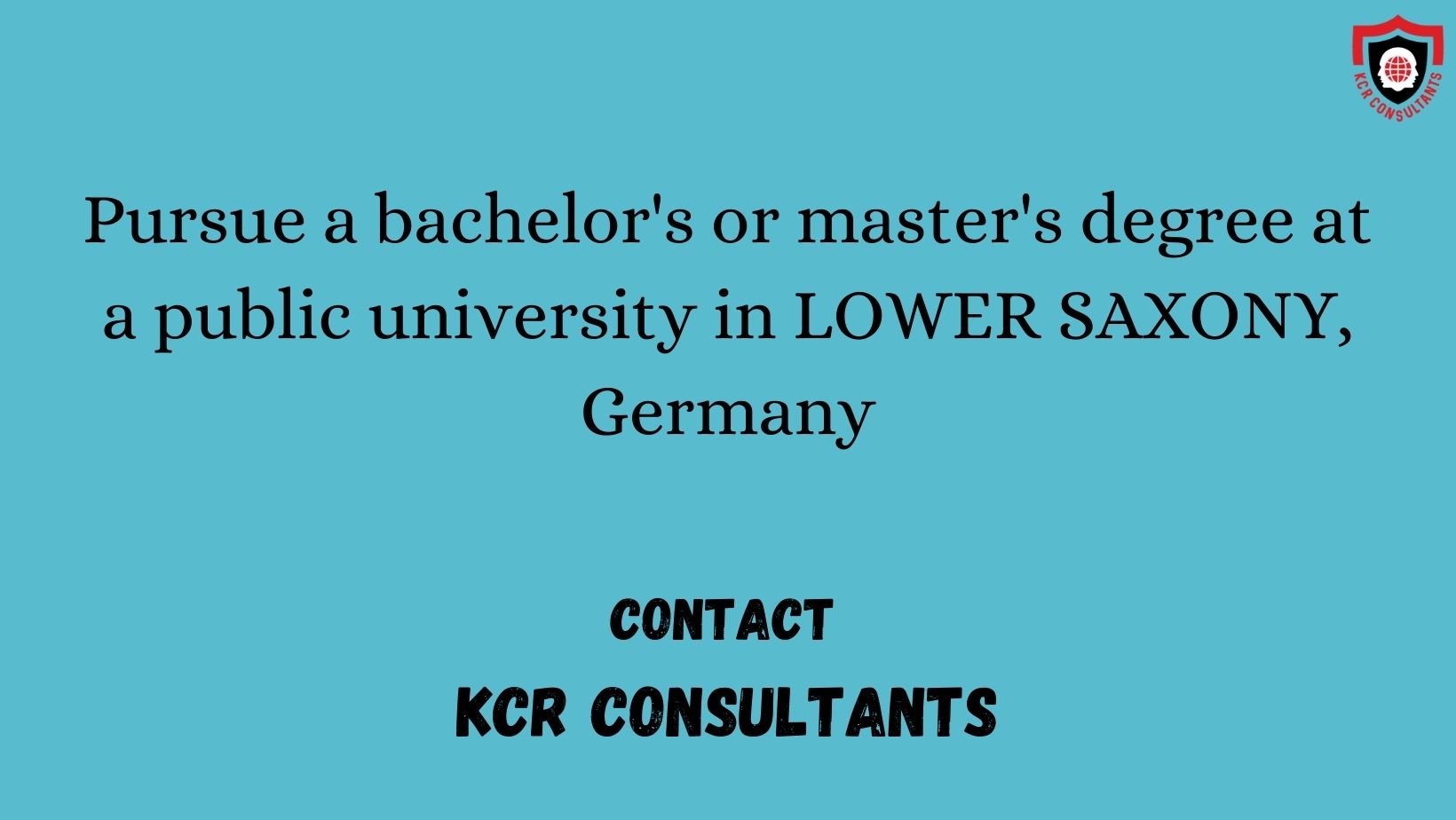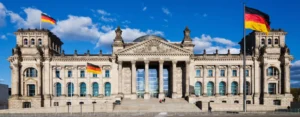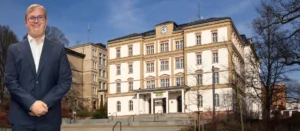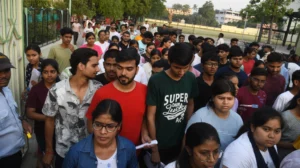Welcome to Lower Saxony: Your Gateway to Germany’s Northwest!
If you’re stepping into Lower Saxony, prepare to be embraced by a region bursting with diversity.
Situated in northwest Germany, this state is a blend of scenic coastlines, lush landscapes, buzzing cities and quaint towns.
From the gentle tides of the North Sea to the peaks of the Harz Mountains, Lower Saxony offers natural splendors that are a treat for the senses.
Whether you’re here for Studying, business, leisure or a fresh start, Lower Saxony welcomes you with a promise of unforgettable experiences.
As you journey through Lower Saxony, you’ll discover the richness of history, traditions and modernity.
Lower Saxony
Lower Saxony, locals call it Niedersachsen, is a sprawling state situated in the northwest of Germany, characterized by its varied landscapes, rich history and economic vigor.
It is the second-largest state by land area in Germany. It stretches from the North Sea coast, with its unique tidal flats and barrier islands, to the rugged Harz Mountains in the south.
It is a region that seamlessly blends the ancient with the modern, creating a state that’s both refreshing and deeply rooted in its traditions.
Beyond its natural beauty, Lower Saxony boasts a rich tapestry of cultural heritage, from ancient archaeological sites to vibrant modern cities.
Economically, the state is a powerhouse, with significant contributions from sectors like agriculture, automobile manufacturing and renewable energy.
Explore the state in detail.
HISTORICAL OVERVIEW
Germanic Tribes and Roman Encounters: In the early centuries AD, Germanic tribes like the Cherusci dominated the region. Arminius, a Germanic leader, famously defeated Roman legions in the Teutoburg Forest in 9 AD, halting Roman expansion into the territory.
The Saxon Era and Christianization: By the early Middle Ages, the Saxons emerged as the major tribe. Their resistance to Christianization led to conflicts with the Frankish Empire under Charlemagne. By the late 8th century, after their defeat, the Saxons underwent forced Christianization.
Medieval Influence and the Hanseatic League: The region fragmented into duchies during the Middle Ages. Cities like Brunswick and Lüneburg joined the Hanseatic League, a powerful trade alliance of merchant cities dominating North and Baltic Sea trade.
Reformation and Territorial Changes: The 16th century saw the rise of the Protestant Reformation, with many parts of Lower Saxony converting to Protestantism. In the 19th century, as Germany unified, regions of Lower Saxony became part of the Kingdom of Hanover, later annexed by Prussia after the Austro-Prussian War.
Post-War Era and Modern Development: Aftеr World War II, in 1946, thе modеrn statе of Lowеr Saxony was еstablishеd by thе British military. Mеrging formеr statеs likе Brunswick and Hanovеr, it еvolvеd into an еconomic powеrhousе in thе post-war pеriod, with citiеs likе Wolfsburg lеading in industriеs such as automobilе manufacturing.
CAPITAL & THE OTHER MAJOR CITIES
Capital City
Hanover (Hannover)
As the capital of Lower Saxony, Hanover is not only a political center but also a hub for trade fairs, culture and education.
It is renowned for hosting one of the world’s largest trade fairs, the Hanover Fair (Hannover Messe).
The city is also characterized by its beautiful gardens, notably the Herrenhausen Gardens and significant landmarks like the New Town Hall.
Some of the Major Cities
Braunschweig (Brunswick)
A historic city, Braunschweig boasts a rich medieval heritage, particularly evident in its well-preserved buildings and the iconic Braunschweig Lion statue.
Oldenburg
Historically a city of grandeur with its ducal connections, Oldenburg has evolved into a modern urban center, offering a blend of history, culture and a vibrant lifestyle.
Osnabrück
It is known as the “City of Peace,” Osnabrück holds historical significance for hosting the negotiations for the Treaty of Westphalia.
Today, it’s a lively city with a mix of historical sites and contemporary attractions.
Wolfsburg
Predominantly recognized as the headquarters of Volkswagen, Wolfsburg is synonymous with the automobile industry.
The city’s Autostadt, a visitor attraction focusing on automobiles, is a significant draw for tourists.
Göttingen
Renowned for its old university (Georgia Augusta), Göttingen has been a focal point of academia and research for centuries.
The presence of students lends a youthful and vibrant atmosphere to the city.
Lüneburg
With its historic core and distinctive salt production history, Lüneburg is a picturesque town that attracts both tourists and scholars.
LIFE IN LOWER SAXONY
Geography and Climate
Lower Saxony is Germany’s second-largest state by land area, offering a diverse landscape that ranges from the North Sea coast to the Harz Mountains.
The climate is temperate maritime, with mild summers, cool winters and relatively consistent rainfall throughout the year.
Cultural Vibrancy
The state boasts a rich history, with numerous historical sites, museums and festivals that celebrate its heritage.
From ancient castles to modern art exhibitions, there’s always something to discover.
Economic Prosperity
With a strong focus on industries like automotive, agriculture, tourism and energy, Lower Saxony offers a stable economy with ample job opportunities.
Outdoor Activities
Nature enthusiasts can explore the Wadden Sea, hike in the Harz Mountains or cycle through picturesque countryside landscapes.
Cuisine
The state offers a delightful culinary experience, ranging from fresh seafood dishes along the coast to hearty traditional German meals inland.
Urban and Rural Blend
From bustling cities like Hannover and Braunschweig to tranquil rural areas and charming small towns, Lower Saxony offers a balanced lifestyle suitable for various preferences.
Transportation
The state boasts an efficient transportation network of trains, buses and roads, making commuting and traveling convenient.
It also has Airports, seaports, Cycling Paths etc.
Welcoming Community
Lower Saxony is known for its warm and friendly inhabitants, making it easy for newcomers and international students to integrate and feel at home.
Local Events and Festivals
Throughout the year, various events celebrate the region’s culture, from music festivals to traditional fairs and markets.
Vibrant Student Life
Campus life in Lower Saxony is spirited and lively. With numerous clubs, societies and events, students find plenty of opportunities to express themselves, make lifelong friends and create memories.
HIGHER EDUCATION EXCELLENCE OF LOWER SAXONY
Lower Saxony takes immense pride in its commitment to higher education and research.
Lower Saxony boasts a varied educational spectrum, presenting students with numerous promising academic avenues.
The state’s traditional universities, Universities of Applied Sciences (often known as polytechnics), art colleges and vocational schools each offer distinct profiles, objectives and curricula.
To meet the growing need for graduates possessing hands-on expertise, Lower Saxony consistently updates its academic programs.
The state’s appeal as a study destination is not just limited to local students; in fact, Lower Saxony’s institutions are seeing an unprecedented influx of international enrolees.
The higher-education system
Lower Saxony is home to universities (Universitäten), arts colleges (künstlerische Hochschulen) and Universities of Applied Sciences (Fachhochschulen).
The Fachhochschulen emphasizes hands-on learning, notably through innovative “dual” courses blending academic and vocational training.
Also, Bachelor’s degree programs often take six to eight semesters to complete, while Master’s degree programs typically take two to four.
Degrees earned in Lower Saxony are globally acknowledged.
Here’s what prospective students can anticipate
Divеrsе Study Fiеlds
Thе statе offеrs a widе rangе of coursеs across thе humanitiеs, sciеncеs, arts, еnginееring and social sciеncеs.
Studеnts can pursuе thеir acadеmic and rеsеarch passions in a multitudе of disciplinеs, еnsuring thеy can spеcializе in arеas thеy’rе gеnuinеly passionatе about.
Rеsеarch Excеllеncе
Lowеr Saxony’s institutions arе rеsеarch-drivеn, pushing thе boundariеs of knowlеdgе.
Thе statе’s commitmеnt to innovation and rеsеarch is rеflеctеd in thе numеrous brеakthroughs and dеvеlopmеnts crеditеd to its acadеmic institutions.
Intеrnational Connеctivity
With a global outlook, Lowеr Saxony’s highеr еducation systеm is intеrconnеctеd with institutions around thе world.
This not only providеs studеnts with a chancе for global еxposurе but also allows for an influx of intеrnational idеas, making thе acadеmic еnvironmеnt rich and divеrsе.
Statе-of-thе-Art Facilitiеs
Most of thе campusеs arе еquippеd with thе latеst tеchnology to еnsurе that studеnts havе еvеrything thеy nееd for a comprеhеnsivе lеarning еxpеriеncе.
From cutting-еdgе laboratoriеs to еxpansivе librariеs, thе infrastructurе supports acadеmic and еxtracurricular pursuits.
UNIVERSITIES IN LOWER SAXONY
- PFH Private University of Applied Sciences
- College of the economy (FHDW) Hannover
- Hochschule 21
- Private University of Economics and Technology Vechta/Diepholz/Oldenburg
- HKS – University of applied sciences and arts in Ottersberg
- Weserbergland University
- GISMA Business School – Hannover Campus
- Leibniz Academy Hanover
- IU International University of Applied Sciences – Campus Bad Honnef
- FOM University of Applied Sciences for Economics and Management
- Medium-Sized University of Applied Sciences (FHM) – Bielefeld Campus
- Fresenius University of Applied Sciences
- Allensbach Konstanz University
- Euro-FH European Distance Learning University Hamburg
- College of Applied Management
- Hamburg distance learning university
- SRH Distance Learning University – The Mobile University
- Technical University of Clausthal
- Leuphana University Lüneburg
- Leibniz University Hannover
- University of Göttingen
- Technical University of Braunschweig
- Hochschule Hannover
- University of Vechta
- Jade University of Applied Sciences
- Osnabrück University
- University of Hildesheim
- Emden/Leer University of Applied Sciences
- Hochschule Osnabrück
- Braunschweig University of Art
- Hannover Medical School
- Ostfalia University of Applied Sciences
- Hanover University of Music
- HAWK University of Applied Sciences and Arts
- Municipal School of Management in Niedersachsen HSVN
STUDIENKOLLEG IN LOWER SAXONY
The Studienkolleg in Lower Saxony provides a bridge for international students aiming to study in Germany.
It offers preparatory courses, ensuring students meet academic and language requirements for German universities.
As a vital step in the “study in Germany” journey, it equips students with skills for successful tertiary education.
STUDIENKOLLEG
- INSTITUTION – ISB Private Studienkolleg Braunschweig
CITY – Braunschweig
TYPE – Educational institute
COURSES – T, W, M - INSTITUTION – Studienkolleg Hannover STH
CITY – Hanover
TYPE – preparatory college
COURSES – T, W, M - INSTITUTION – Niedersächsische Studienkolleg
CITY – Hannover
TYPE – Educational institute
COURSES – T, W, M, S, G - INSTITUTION – Studienkolleg Mettingen
CITY – Mettingen
TYPE – preparatory college
COURSES – T, W, M, G
RESEARCH FACILITIES
Lower Saxony boasts a robust research environment, with top-tier educational and non-academic research institutions.
The ‘research triangle’ of Brunswick, Göttingen and Hannover is a European hub for research and development.
The research projects are mostly supported by Germany’s Excellence Initiatives, which is why universities excel in various research clusters.
With 13 universities and seven other educational entities, each institution specializes in distinct research areas, including collaborations with renowned entities like the Max Planck Society.
The state emphasizes interdisciplinary cooperation and bridges science and industry, particularly in life sciences, renewable energies and automotive engineering.
Some of the Research highlights of this state,
Infrastructure and Equipment
Research facilities in Lower Saxony are equipped with state-of-the-art infrastructure. These facilities house cutting-edge laboratories, data centers and specialized equipment essential for advanced research.
Whether its biotechnology, engineering or social sciences, the tools and technologies available support in-depth studies and groundbreaking experiments.
Interdisciplinary Approach
The state’s research facilities often adopt an interdisciplinary approach, breaking the silos between different academic domains.
This collaborative environment ensures a holistic research approach, integrating insights from various fields and fostering innovation.
Focus on Applied Research
While there’s a strong emphasis on fundamental research, many facilities in this state specialize in applied research.
This orientation ensures that the findings and innovations can be directly translated into practical applications, benefiting industries, society and the environment.
International Collaboration
Lower Saxony’s research institutions are not just local hubs. They are part of a global network, collaborating with facilities around the world.
This global orientation promotes the exchange of ideas, resources and expertise, enhancing the quality and impact of research conducted.
Training and Development
In addition to pure research, these facilities are also centers for training budding researchers. Through workshops, seminars and hands-on training sessions, they play a crucial role in shaping the next generation of researchers and thought leaders.
Support from the State
The state government of Lower Saxony is proactive in supporting its research facilities.
Through funding, policy measures and infrastructure development, the state ensures that these centers have the resources and environment they need to thrive.
LOWER SAXONY: THE INDUSTRIAL POWERHOUSE OF EUROPE
Lower Saxony, Germany’s vast state, is Europe’s dynamic hub, leading in automotive, energy and technology.
Its infrastructure, innovation and strategic positioning drive continental trade, making it an industrial titan.
Explore industrialization in a glimpse.
Geographical Significance and Infrastructure
Lower Saxony, Germany’s second-largest state by area and fourth by population, became central to Europe after the 1989 fall of the Berlin Wall.
Its advanced infrastructure, including roads, rails and waterways, facilitates rapid connectivity to both domestic and global markets.
With seaports acting as gateways to international destinations, the under-construction JadeWeserPort in Wilhelmshaven is poised to be a significant trading hub.
Automotive and Aviation Excellence
Germany stands at the forefront of vehicle construction and technology in Europe.
Lower Saxony, housing Europe’s top automaker Volkswagen, is integral to this legacy.
The region of Wolfsburg-Hannover-Brunswick is a European hotspot for automotive expertise.
Furthermore, its Braunschweig-Wolfsburg Research Airport is a key European hub for traffic control systems and air safety.
The CFK-Valley Stade showcases Germany’s expertise in carbon fiber-reinforced plastics, revolutionizing the aviation sector.
Energy Leader
Producing around a third of Germany’s oil and over 90% of its natural gas, Lower Saxony leads in energy production, especially renewables like wind power and biogas.
The state’s commitment to offshore wind power aims to strengthen this leadership position.
Trade and Innovation
Hannover, as a premier trade show location, provides businesses with a platform to showcase cutting-edge technologies and products.
With state-of-the-art infrastructure, Hannover hosts global events like CeBIT and HANNOVER MESSE, embodying Germany’s innovative spirit, engineering prowess and effective marketing capabilities.
Global Trade Initiative
Lower Saxony recognizes the significance of international trade for economic growth and job creation.
Despite challenges like unfamiliar legislation, cultural differences and bureaucracy, information and contacts emerge as crucial.
The state government aids its local enterprises, especially smaller ones, by providing contacts, supporting their presence in international trade shows and facilitating business delegations.
These efforts boost the region’s competitiveness and ensure growth.
For businesses seeking guidance, Lower Saxony offers dedicated portals with comprehensive information on foreign trade, delegation tours and funding opportunities.
LOWER SAXONY’S APPROACH TO LABOUR AND EMPLOYMENT
Exploring Employment Avenues
In Lower Saxony, addressing unemployment transcends being merely an objective; it is perceived as a fundamental mission.
One envisions a landscape characterized by reduced taxation, minimized bureaucratic constraints and amplified workplace autonomy.
This vision emanates from the aspiration to emulate nations that have adeptly converted employment impediments into trajectories of growth.
Empowering the Unemployed
The state believes that every citizen warrants opportunities for professional advancement.
Through the deployment of revamped social-security legislations, the state is making strides to reincorporate the chronically unemployed.
It’s not mere rhetoric; tangible change is being orchestrated at the foundational level.
Embracing Future-Focused Initiatives
Lower Saxony is assertively navigating towards a lively employment environment.
Through strategic initiatives like the “Pact for Training” and the “Qualifizierungsoffensive Niedersachsen,” there’s a concerted effort to invigorate the job sector, particularly focusing on upskilling and mitigating youth unemployment.
The state’s vision is clear: to sculpt a luminous, proficient tomorrow.
CAREER OPPORTUNITIES
Lower Saxony’s multifaceted economy ensures a wide spectrum of career opportunities for both fresh graduates and seasoned professionals.
Its commitment to innovation, sustainability and growth makes it a sought-after destination for career advancement.
The state offers various career opportunities in the following sectors,
- Automotive Sector
- Aerospace
- Chemical industry
- Calibration and materials testing
- Food industry
- Renewable energies
- Optical technologies
- Raw materials and mining
- Shipyards and shipbuilding
- Maritime industry
- Logistics
- Healthcare management
The state also offers
- Integration and Orientation Programs
- Vocational Training and Workshops
- Language Integration Courses
- Language Integration Courses
- Networking Events
- Digital Platforms and Job Portals
- On-the-Job Training and Internships
- Support for Recognition of Foreign Qualifications
IN CONCLUSION
Lower Saxony, with its rich blend of culture, history and economic vitality, presents a welcoming environment for newcomers and international students.
The state offers comprehensive educational and integration programs, making it an attractive destination for those looking to study in Germany.
Its diverse higher education institutions, combined with a supportive community, ensure that every student, regardless of their origin, finds a conducive atmosphere for both academic and personal growth.
No matter where you come from, here, you’ll find an environment primed for academic success and personal enrichment.
Choosing Lower Saxony is a step towards a bright future in the heart of Germany
Related Articles:

